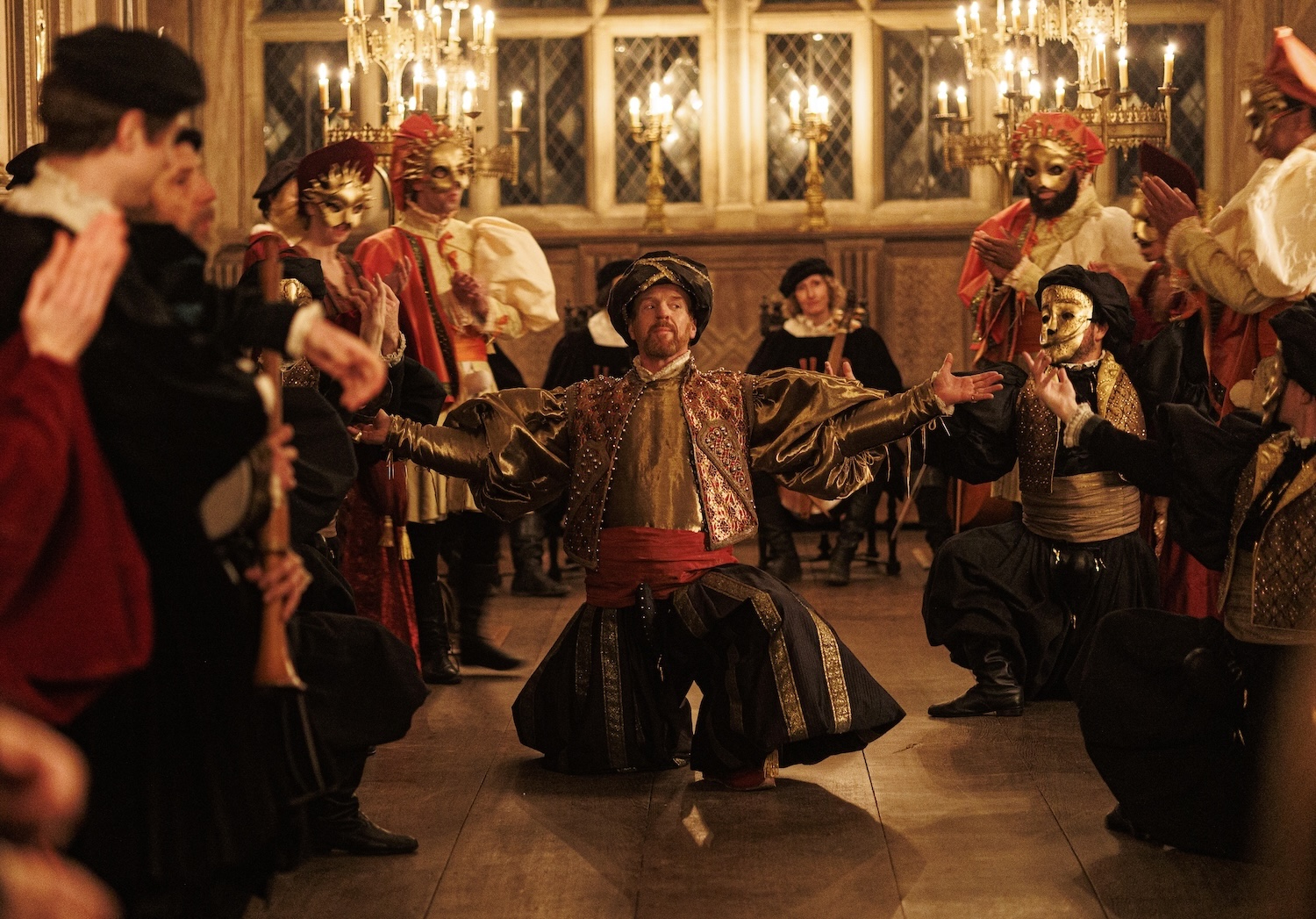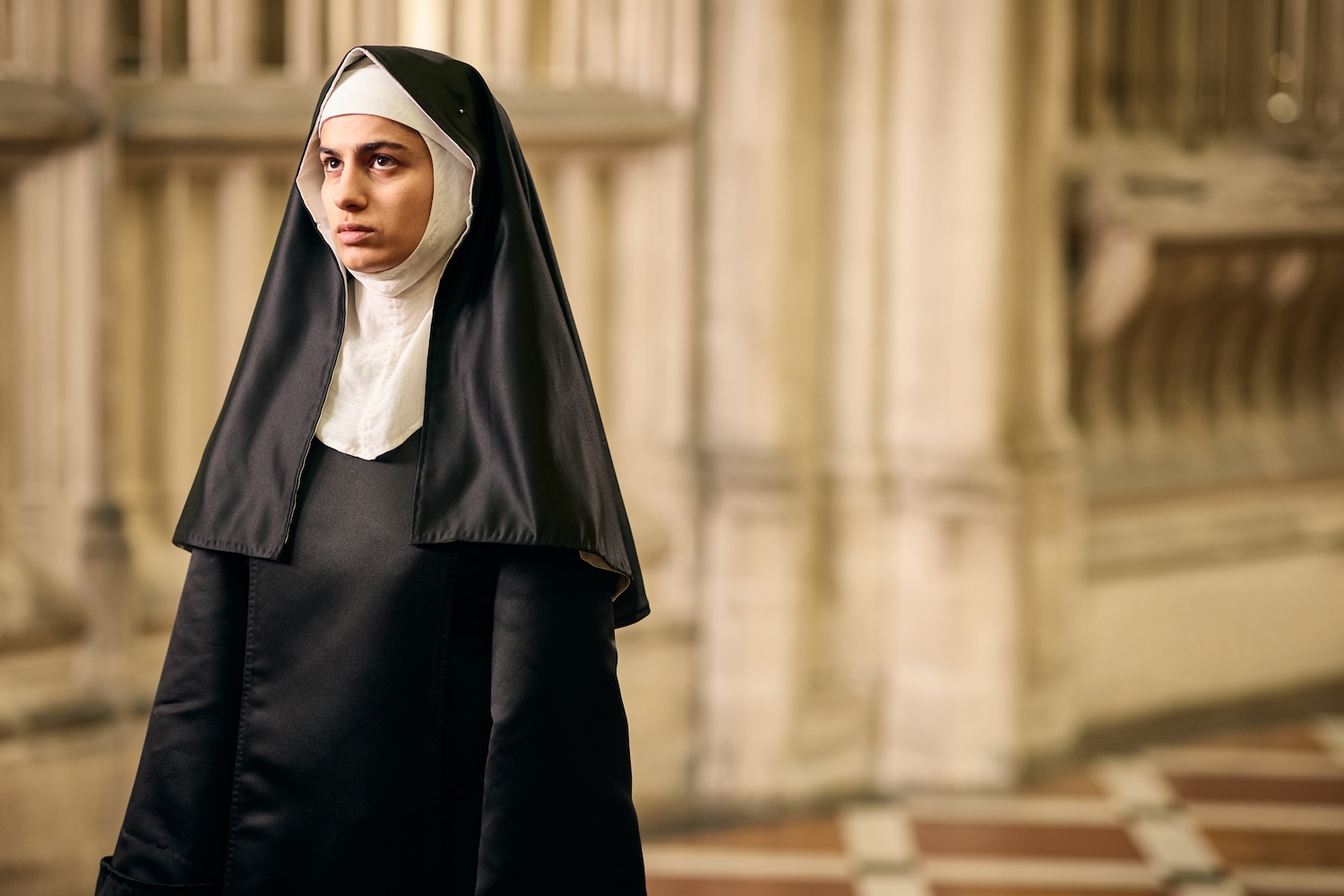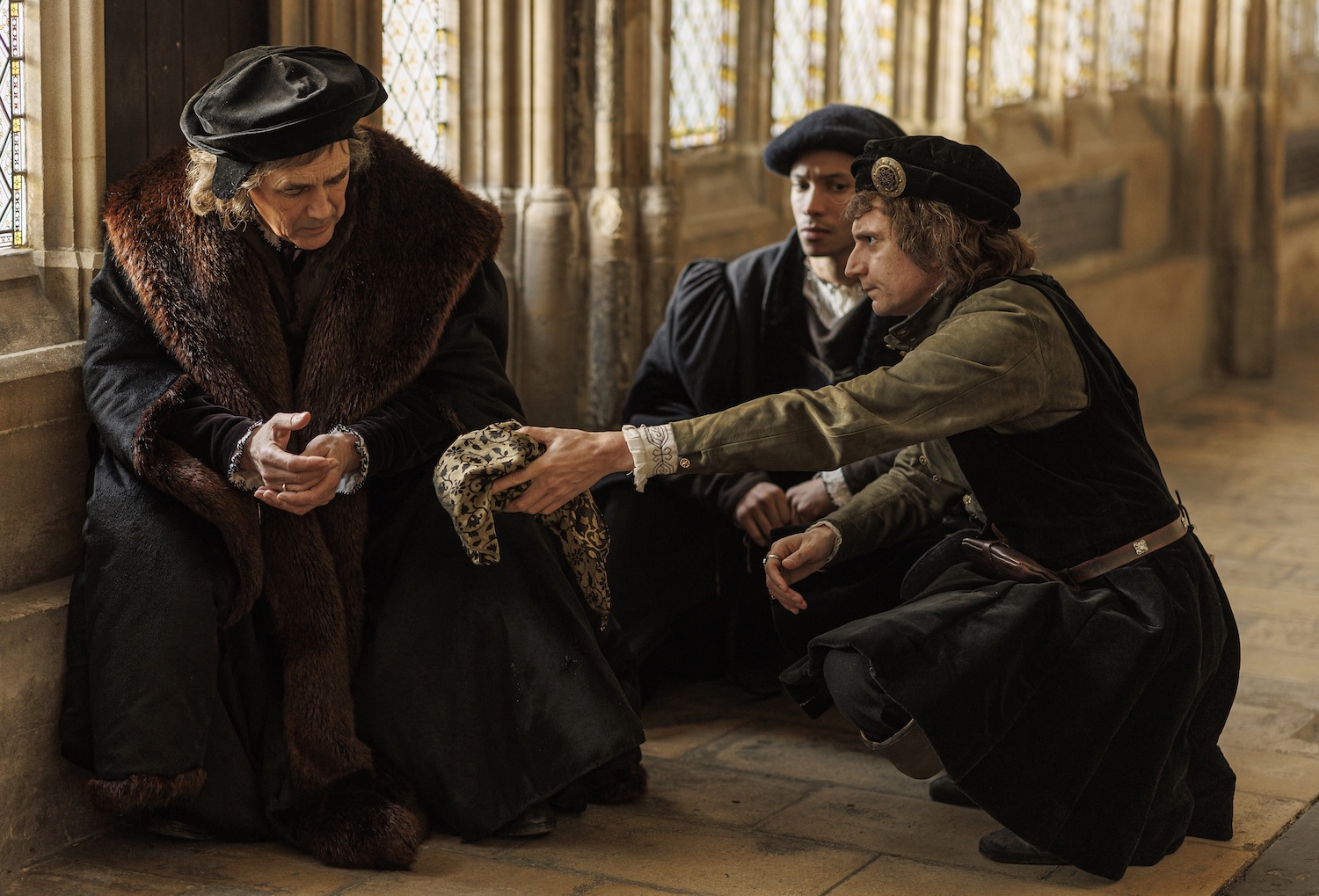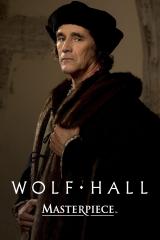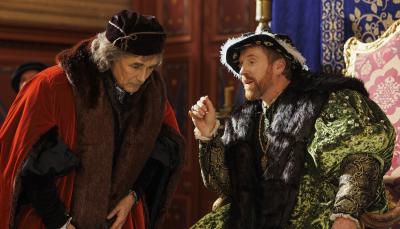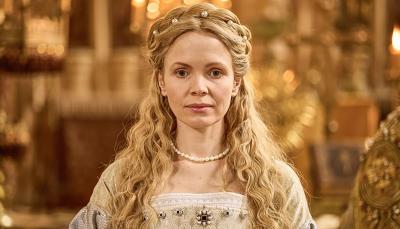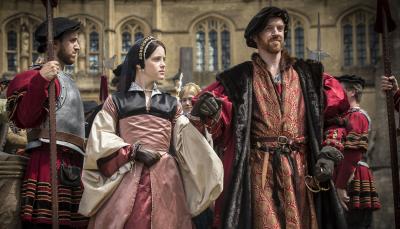Cardinal Wolsey Casts a Long Shadow Over 'Wolf Hall's' Return
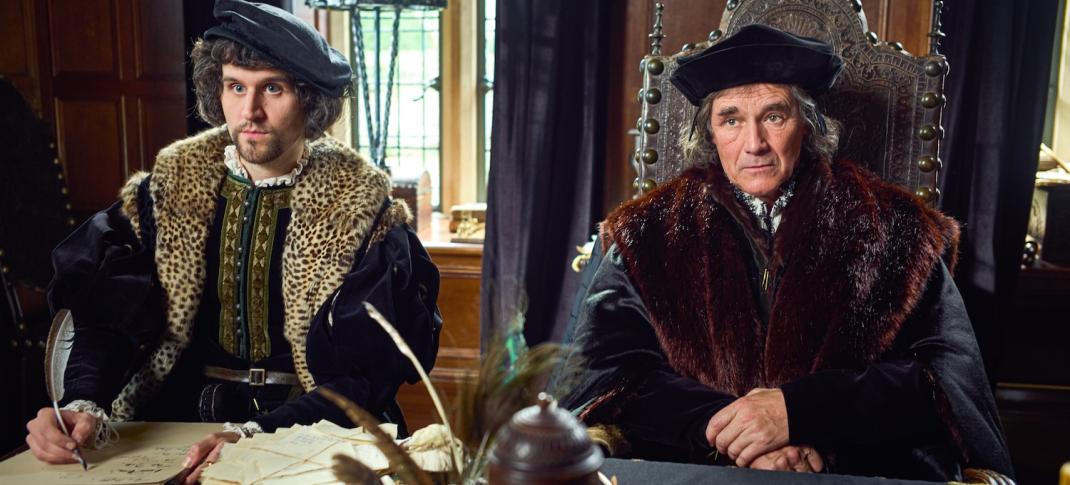
Mark Rylance and Harry Melling in "Wolf Hall: The Mirror and the Light"
(Photo: Masterpiece)
One of the most impressive things about Wolf Hall: The Mirror & the Light is how ponderous it is. (That's a compliment, by the way.) Everything about this show is both deliberate and incredibly slow-moving, all the better to underscore just how volatile and ever-changing this particular sliver of history truly was. As is fitting for any follow-up, a good portion of this sequel is also about reckoning with the past, and even as we see a Thomas Cromwell who's as powerful as he will ever be, he still must confront the choices, both good and ill, that he made to get where he is.
Where last week's premiere touched on Cromwell's involvement in Anne's fall, The Mirror & the Light's second episode revisits his relationship with Cardinal Wolsey from the pair's first meeting —that bit about Wolsey being excited to finally outrank someone in terms of birth is apparently true!— to their final farewell before the Archbishop's death. Scenes from the previous series are edited together to give us a sort of Cliff's Notes reminder of their story. However, this time around, the show at least sort of implies that Cromwell's decision to stay at Henry's court was as much about pursuing his own advancement as it was about returning Wolsey to the king's favor.
Interspersing Cromwell's oath to the Privy Council with Wolsey's dying breaths as he receives last rites and waits, fruitlessly, for his "entirely beloved" friend to return....it's brutal stuff. It's certainly not shocking that some, and perhaps even Wolsey himself, likely assumed that Cromwell was simply hitching his wagon to a brighter star rather than going down with a man who was clearly being brought back to London to die.
Throughout Wolf Hall, Cromwell's love for Wolsey has been the character's North Star, one of the few things we can say with certainty is true about a man who prides himself on essentially being unknowable. In The Mirror & the Light, the now-dead Wolsey has graduated to inner monologue status, a seemingly conscience-based hallucination that serves as everything from confessor to sounding board. He remains the one true constant in Cromwell's life and the audience's one touchstone regarding how to read him. That Wolsey's daughter* gives us our first real glimpse of Thomas Cromwell in emotional crisis probably shouldn't be as surprising as it is.
*A quick note about the daughter thing—many men in high-ranking ecclesiastical positions had common-law wives (or regular partners) and children, despite both being technically forbidden by the Catholic Church. Depending on who you ask, the idea of priestly celibacy among the lower-ranking clergy wasn't widely embraced, in England, anyway. The real Wolsey had a long-term relationship with a woman named Joan Larke from Norfolk, with whom he had two children before he was made a Bishop. One of them was a girl named Dorothea who was placed in the convent at Shaftesbury Abbey, but how she felt about Thomas Cromwell (or if the two ever met) is a question lost to history.
The version of Dorothea we met in The Mirror & the Light has no such restrictions on sharing her thoughts. She's a certified Cromwell hater, blaming him for everything from her father's death and the decimation of her faith to Henry's greedy interest in religious houses and the assets they possess. The king hasn't technically decided to dissolve the major monasteries yet — Cromwell is busy insisting he won't, even though he will eventually call Launde Abbey home — but we all know it's coming. It's a move that will decimate the social fabric of England in ways that this show sadly won't have time to explore.
Her rejection of everything from Cromwell's money to his hand in marriage is absolute and devastating, leaving him in tears, sobbing at the thought that his one true friend might have spent the final days of his life believing he'd betrayed him. It's a rare bit of public emotional honesty from a man who spends his life wearing the faces others expect to see, and it's difficult not to feel genuine sympathy for him. "How do you remake your reputation with the dead?" he asks, and the despair and desperation in his voice convey multitudes.
"Obedience" is an hour where several prominent plot points take root, from the rumor that Cromwell is planning to try and wed Princess Mary himself to Lady Margaret Douglas' (Agnes O'Casey) scandalous attempt to marry herself off to a Howard without securing the king's permission. Henry's niece was in and out of favor with the king and his daughter, the future Elizabeth I, for large stretches of her life, thrown in the Tower more than once and imprisoned in Syon Abbey for over a year and a half.
(She did go on to marry a Scottish earl.)
While surviving letters confirm she and Thomas "Tom Truth" Howard were very much in love, the inclusion of her story here is likely meant to remind us how dangerously unstable Henry is growing and how his fury can so quickly turn against women he claims to care for. (It's not an accident that he's already complaining about his new wife, Jane.) But Meg's predicament is another win for Cromwell, who once again gives his master what he wants by strong-arming someone else into lying for Henry's benefit. (Though admittedly, it's also saving Lady Douglas's head.)
In many ways, this episode uses Wolsey as a cautionary tale. Cromwell's story is, in large part, a mirror of the Archbishop's own. A low-born but wildly intelligent man rises to unfathomable power and influence, but what King Henry VIII giveth, he can also taketh away. Wolsey's fatal mistake was made well before he ever found himself dying alone at Leicester Abbey. Perhaps the same is already happening to his protege.
The king is, after all, a monster of Cromwell's own making. He's shown him that he can toss aside wives he doesn't like and ignore religious rules that don't suit him, which is great if you're Henry, of course. But he's also petty and paranoid, and he resents that Cromwell's scheme to get rid of Anne came with such a heaping side dish of public humiliation. (What did he think would happen when he told everyone his wife was a witch who slept with half a dozen men under his nose??)
Cromwell's not helping himself by talking to the new queen, Jane, about her sex life or his stubborn loyalty to Princess Mary. Sure, the show has him spout some nonsense about how a ring doesn't automatically equal some sort of binding promise, but he's got to know how it looks to be sending personalized jewelry to the king's mostly still-estranged daughter. Is all his newfound power going to his head? Or is he just as lonely and unhappy as he seems?
Wolf Hall: The Mirror and the Light airs on most local PBS stations and streams on the PBS app weekly on Sundays at 9 p.m. ET. All episodes are available for PBS Passport members and the PBS Masterpiece Prime Video Channel to binge before their on-air broadcast.

